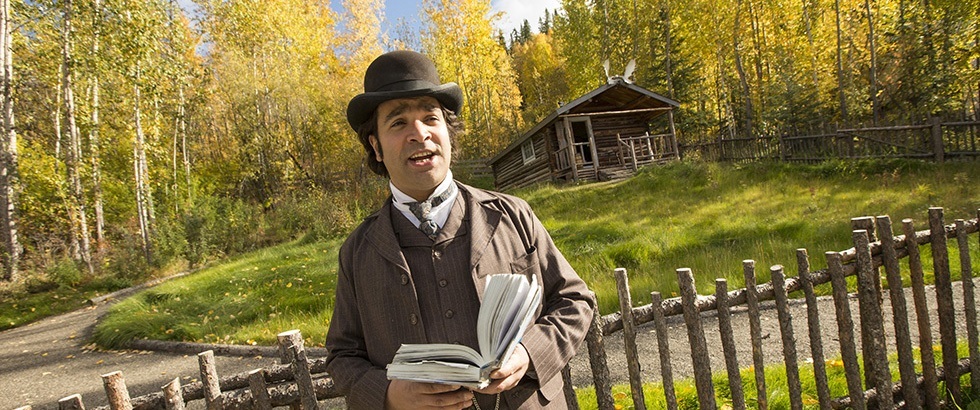Tips from a Festival Director
By Lily Quan
One of the surprising things to happen when I moved to Yukon was that I became director of an annual writers’ conference. As part of my role, I secure authors, negotiating their fees, even signing their paycheques. As a writer myself, I never expected to end up inviting writers to such an event. I also didn’t realize how critical this type of work has become: An author can make a significant portion of their income from speaking engagements these days. It’s as though the book has become an author’s calling card.
For each author I bring up to Whitehorse, I cast out a dozen nets that come up empty. I’ve learned a few lessons about working with writers that I’d like to pass along. These tips might help you build your reputation as an author people will want to work with. Note: It’s not the literary reputation or genuine affection for your book that makes or breaks the deal.
1. Get back to me
I’ve noticed that the writers who tend to get invited are ones who respond promptly. They or their crackerjack publicist respond to emails, answer questions and indicate their ongoing interest if there has been a lag in time. Why do we like this? Because it makes our life easier. Once we confirm an author is coming, preferably with a settled date, we can confidently look at funding, secure sponsors, book the venue and move ahead with promotion.
I was negotiating with one author through her personal publicist. She had immediately agreed to come up and would have been a big hit. But as time went on, the delays in communication got longer and longer, and it became harder to pin down a date. It became clear that we were being shuffled to the bottom of the deck. While I can understand this – Yukon isn’t around the corner and we’re not the IFOA – I have deadlines to meet just like the folks in the major centres. I eventually let the trail grow cold and we went with another author because frankly, I got tired of being treated like the person who guards the purses. Which leads me to Point #2:
2. Don’t be a dick
Really. Festival directors talk. And we compare notes. We’ll note which authors are great to work with and which ones made us run to the bar afterwards. And it doesn’t matter if the event is in a remote location like Yukon. I go to conferences and festivals outside the territory, and I always seek out the organizers to talk shop. Be polite, cooperative and respectful to the people who host you. At times I’ve had a last-minute cancellation, and I’ve emailed my industry buddies for a recommendation. Invariably, the authors they recommend are people the festival staff enjoyed working with.
Your CanLit News
Subscribe to Open Book’s newsletter to get local book events, literary content, writing tips, and more in your inbox
3. Act like a Boy Scout: Be Prepared
Have the following materials ready if you’ve been contacted about a speaking engagement: a hi-res photo of you from the shoulders up, a list of possible workshops or talks, and a one-paragraph literary bio. (It doesn’t matter if we can look it up online. A compact version directly from you makes our life easier.) Hook us up with your publisher so we can get a promotional copy of your book(s). Again, this allows us to move ahead confidently with preparing for your visit and to look at programming options. Otherwise we very well might end up saying to potential sponsors, “So-and-so author is coming this fall. We don’t know what he’ll talk about, but it’s going to be great.” I’ve done this. It doesn’t really work.
In addition, be prepared in terms of your presentation. If you are given 20 minutes for a reading, then stick to that. Time yourself. Organizers keep the events on a tight schedule and are very sensitive about giving adequate time for each presenter. If you go over your allotted time and, as a result, shortchange the author who follows you, you very well may not be asked back.
4. Thank the organizers
Festivals are fuelled by volunteer work. The major festivals have a handful of paid staff and hundreds of volunteers who make it happen. As director of my own conference, I get a fee. But for all my hours of work, it amounts to a modest honorarium. Schoolchildren make more money than I do. There’s a lot of goodwill involved in makingyour visit possible. So after you leave, remember to be considerate: email or write an honest-to-goodness card thanking everyone involved. People will speak highly of you, and who knows, maybe even invite you back someday.
The views expressed by Open Book columnists are those held by the authors and do not necessarily reflect the views of Open Book.
Lily Quan is a writer and editor based in Whitehorse, Yukon. Her work has appeared nationally on CBC Radio and The Globe and Mail. She runs the annual Northern Lights Writers’ Conference, whose featured authors from down south have included George Elliott Clarke, Terry Fallis and Andrew Westoll. For a glimpse of her past adventures in Yukon, visit sourdoughwannabe.wordpress.com.



